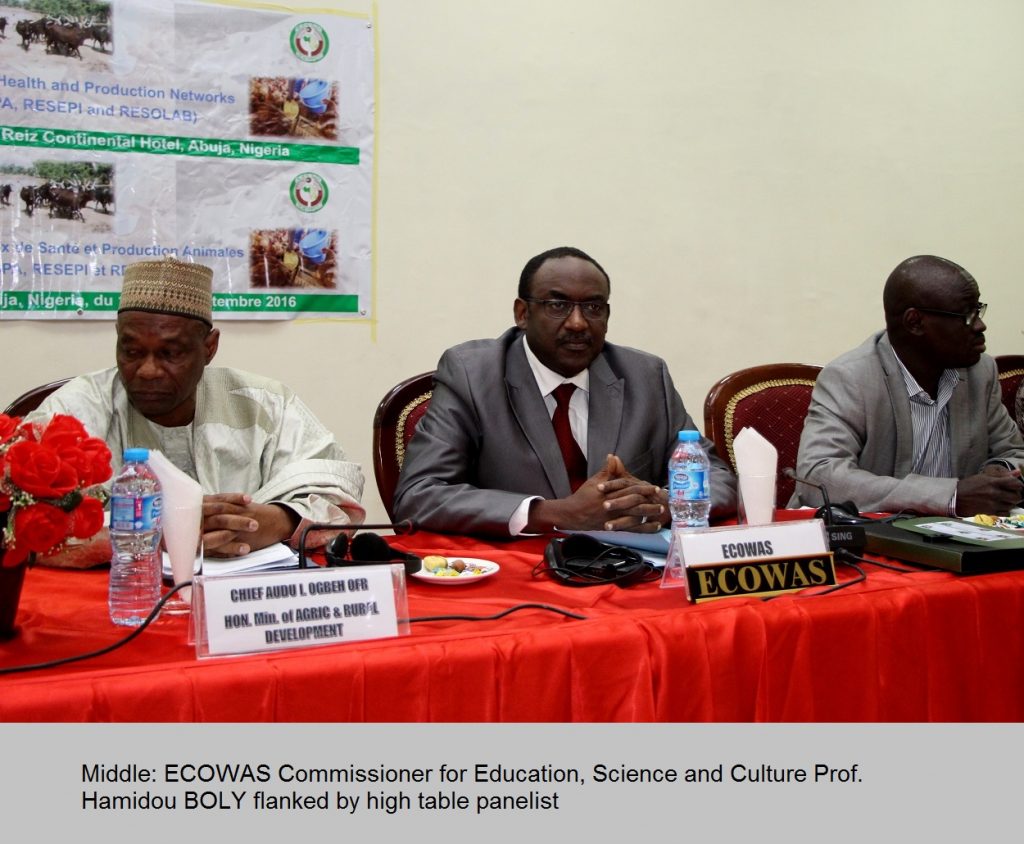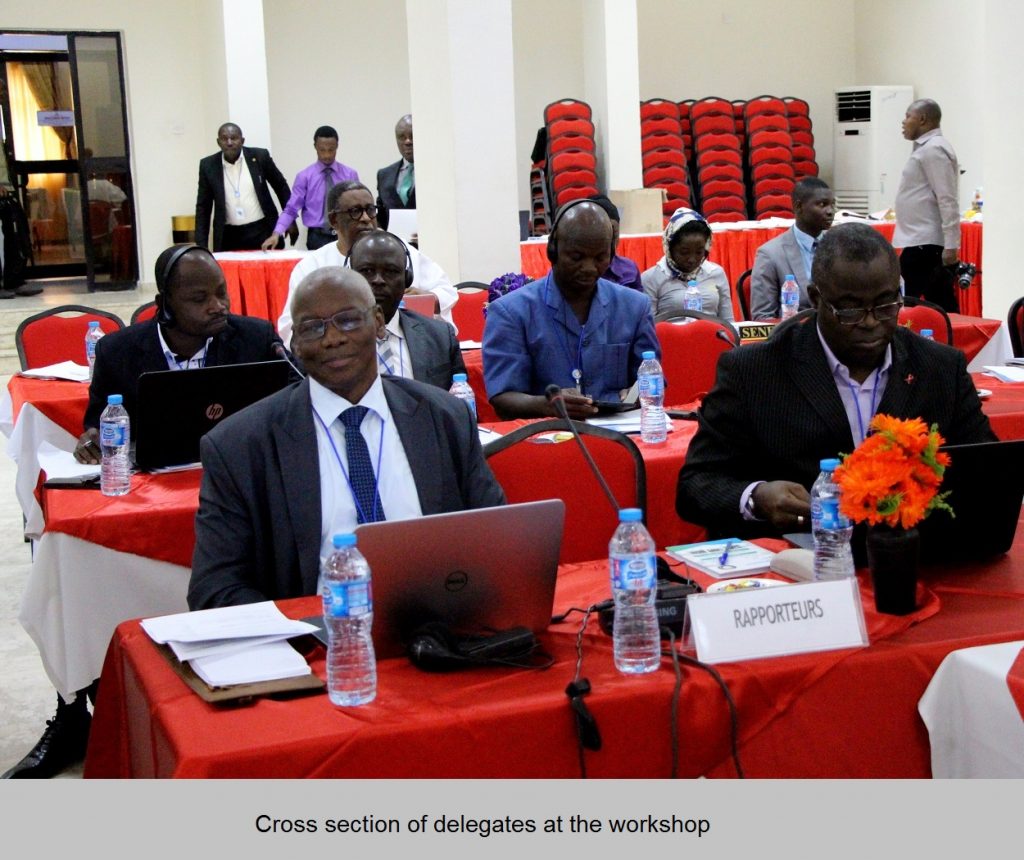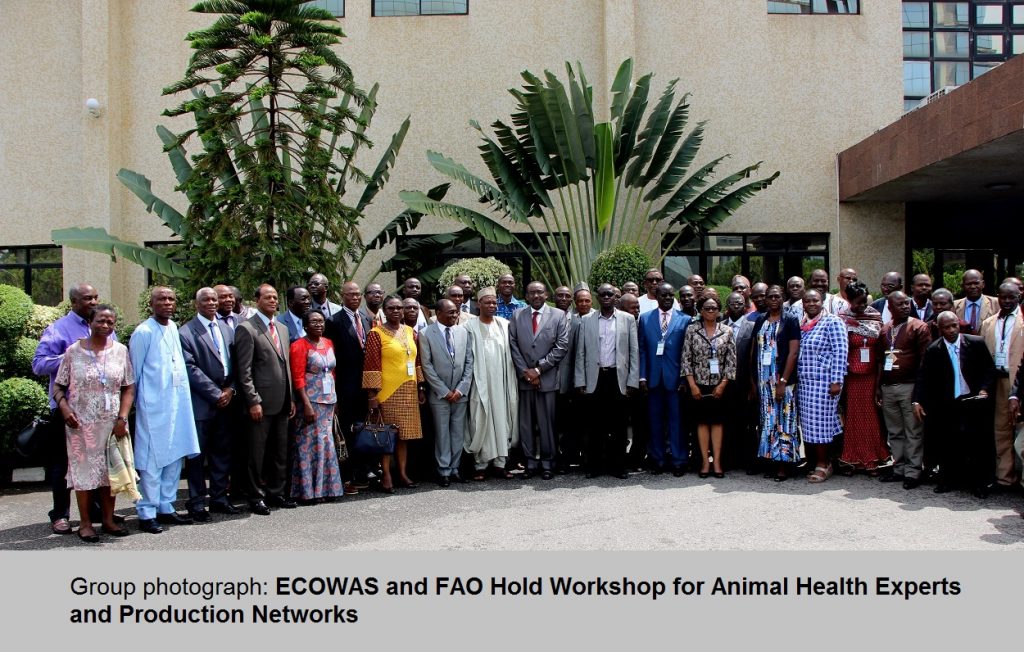ECOWAS and FAO Hold Workshop for Animal Health Experts and Production Networks
In collaboration with the Food and Agriculture Organisation (FAO), the ECOWAS Commission is holding a 5-Day regional workshop of Animal health experts, production networks, senior regional government officials and representatives of supportive international agencies.
The workshop which also draws participants from Directors of Veterinary Services and producer organisations opened in Abuja on the 19th of September 2016, to share experiences, exchange Ideas on the trends and challenges of the livestock sector and make recommendations on the way forward.
Speaking on behalf of President of the ECOWAS Commission at the opening ceremony, the ECOWAS Commissioner for Education, Science and Culture Prof. Hamidou BOLY said the ECOWAS Commission identifies animal resources as a critical part of its agriculture development effort because the animal resources sector has immense potential for food and nutritional security, poverty reduction, income generation, wealth creation and improved livelihoods for ECOWAS citizens.
According to him, it is estimated that “70 percent of the population of the ECOWAS region earn more than 50 percent of their incomes from livestock rearing while the Livestock sector contributes 23 percent to 35 percent to the agriculture Gross Domestic Product (GDP) in the region”
Meanwhile the continuing violent clashes between transhumant herdsmen and crop-farming communities have remained a challenge for both ECOWAS and the region in general. Other challenges include animal diseases and climate change forcing ECOWAS in collaboration with several regional, continental and international organisations including the World Organisation for Animal Health (OIE), Food and Agriculture Organisation (FAO) and The African Union Inter-African Bureau for Animal Resources (AU-IBAR), to establish the Regional Animal Health Centre (RAHC) based in Bamako, Mali.
Commissioner Hamidou BOLY noted that having taken cognizance of the importance of the livestock sector, ECOWAS has since developed a strategy for the transformation of the sector under the framework of the ECOWAS Agriculture Policy (ECOWAP) and the Regional Agriculture Investment Plan (RAIP) to harness the economic potentials of the sector in the region.
In order to further consolidate the work done so far in this regard, he disclosed that the authority of heads of state of ECOWAS has since adopted a Supplementary Act that recognizes the RAHC as an ECOWAS technical agency on animal health. In this same vein, he said the Epidemiological Surveillance (RESEPI) and the Veterinary Laboratories (RESOLAB) networks were established by the FAO but later handed over to the ECOWAS Commission for sustainable regional animal disease surveillance and diagnosis.
Also speaking, the Nigerian minister of Agriculture Dr. Audu Ogbe maintained that Abuja convergence was very timely considering the many challenges the livestock industry is grappling with in the West African region.
Represented by the Permanent Secretary of his Ministry, Mr. Shehu Ahmed, the minister noted that Nigeria’s livestock sub-sector has a high potential for growth. However, he stressed that the potential is not being realized due to “the production system which is mainly extensive/transhumance and semi-intensive where animals are allowed to roam in search of feed/pasture”
Such practices, he stressed further, do not allow for proper nutrition required for growth and production, as a result, there is under productivity.
He said it was worrisome that despite the existing Regulations on transhumance in the ECOWAS sub-region and between the Member States relating to free movement of persons, goods and services and the mechanism for conflict prevention, management and resolution, in 2016 alone there have been several fatal clashes between herders and farmers in Nigeria and there is urgent need to find lasting solutions to this hydra headed problem.
In his statement, the leader of the West African Team in the FAO Regional Office for Africa Dr. Berhanu Bedane maintained that the meeting of experts and partners will do well to discuss the full functionality and sustainability of the animal health and animal production Networks.
He emphasized that the funding support which the network continues to get from the FAO is a demonstration of its importance in livestock development.
Apart from regional and international partners including the West African Health Organisation (WAHO), all members of the four networks-Epidemiology, laboratory, directors, of veterinary services and animal production are participating in the meeting.






